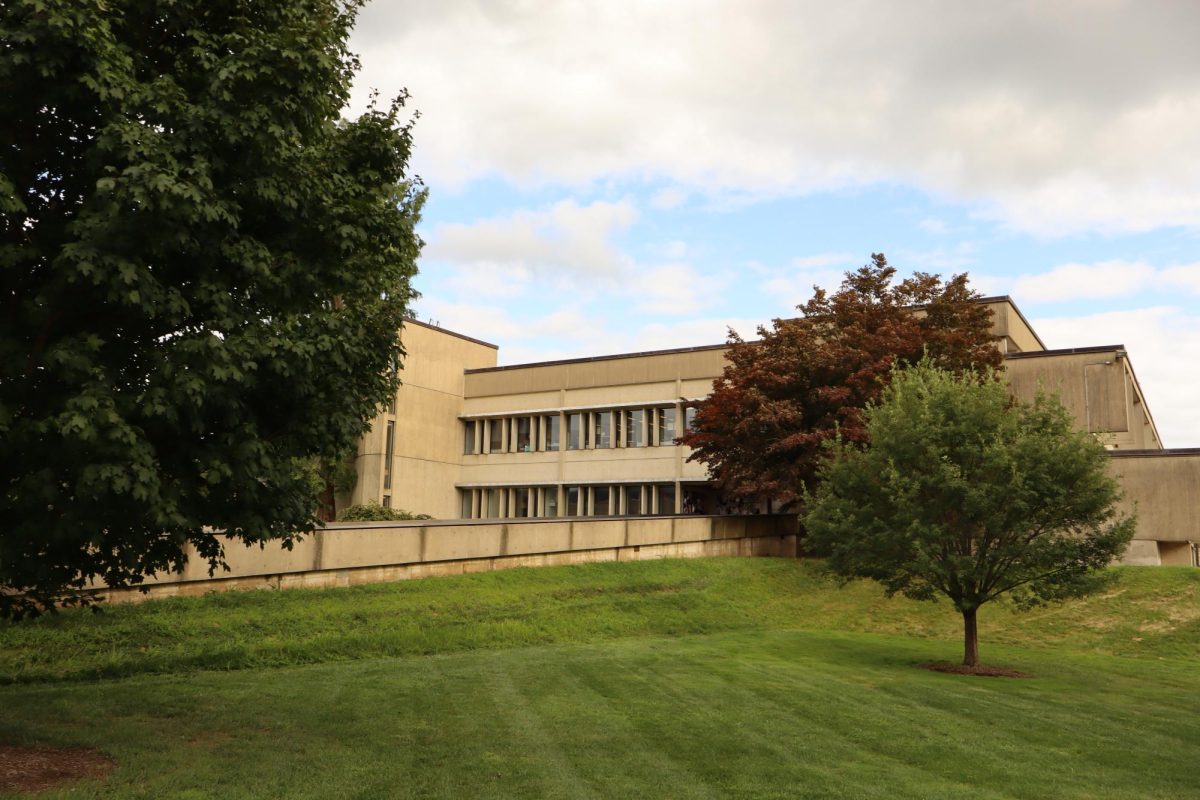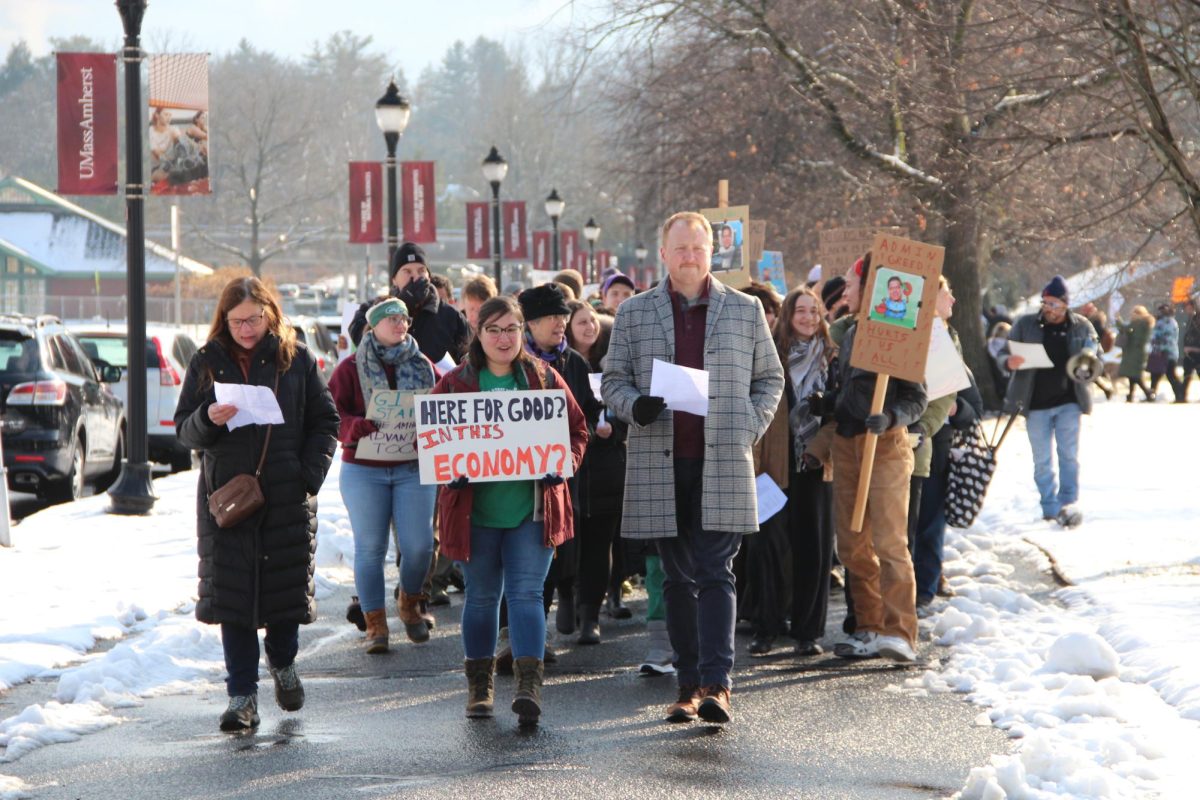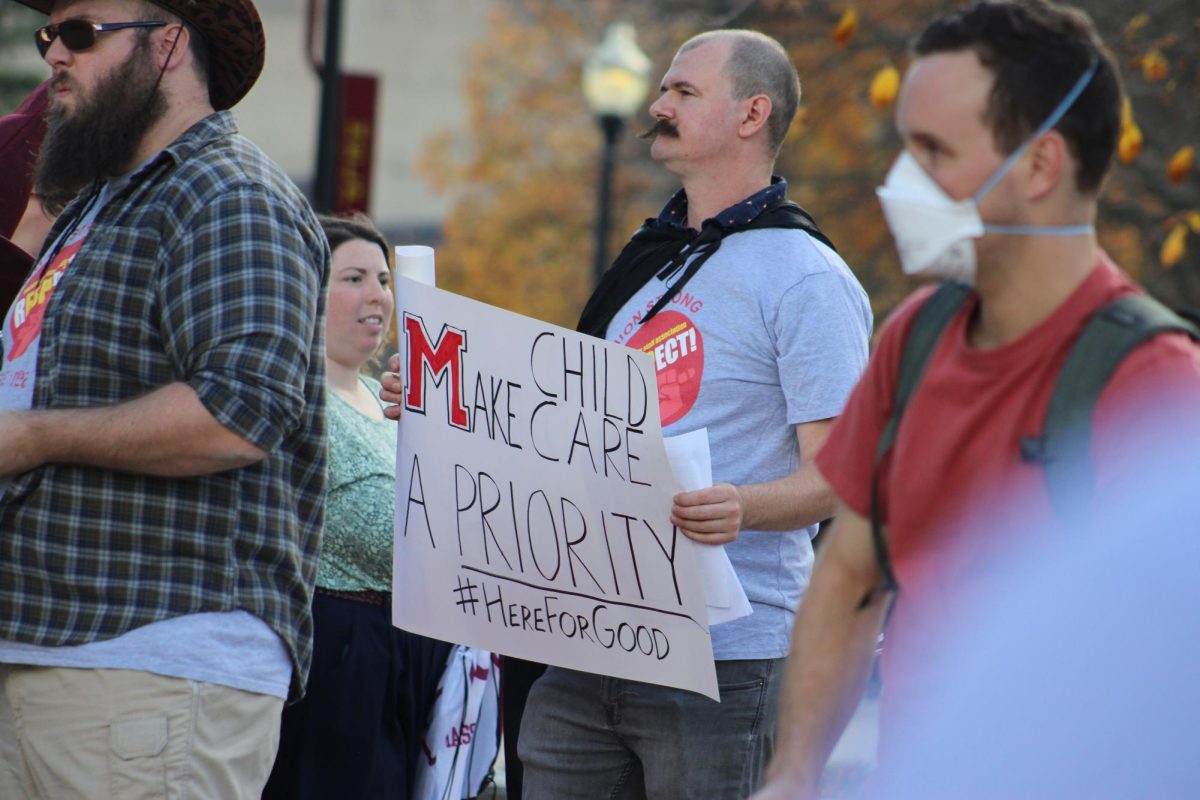On Wednesday, Sept. 4, University of Massachusetts Amherst Chancellor Javier Reyes released the Campus Demonstration Policy Taskforce’s (CDPT) report, while announcing that the Chancellors’ office will no longer issue public statements on events unrelated to the functioning of the university.
Reyes announced the creation of the CDPT this June, in the wake of over 130 arrests at a Gaza Solidarity encampment late last semester, affected by a combined police presence of both the University of Massachusetts Police Department (UMPD) and Massachusetts State Police’s Special Emergency Response Team (SERT). Students involved alleged brutal treatment by the police during the latter stages of the protest and while in police custody.
The CDPT consisted of representatives from Administration and appointees from the Student Government Association, Graduate Student Senate and Facility Senate Rules Committee.
The 11 page report released by the CDPT details recommended changes to the Land Use Policy (LUP), Picketing Code and Student Demonstration Guidelines. The LUP was deemed “the most critical policy given that it informed all campus-level policies beneath it,” and as such received the most focus.
Recommendations for altering the LUP mostly revolve around clearing up ambiguities. The most prominent ambiguity is the definition of “structure.” The current LUP prohibits the placement of said “structures” without approval from the Vice Chancellor for Administration and Finance. The new list of specific items recommended to be barred by the LUP includes buildings, frameworks, tents, platforms, bins, fences, signs and flagpoles, among other items.
The committee also recommended clarification on the distinction between enforcement by the UMPD and the Dean of Students Office (DOSO). The clarification seeks to ensure that only “interference with official University functions that represent illegal acts” is handled by UMPD, while all other interference is handled by DOSO under either the Student Code of Conduct or, the Principles of Employee Conduct.
This distinction, however, is complicated by what the CDPT describes as a “recent trend in demonstrators either refusing to identify themselves to officials or purposefully hiding their identity.” This could prevent responders from knowing what rules apply to protestors.
The CDPT pointed to a 1987 Picketing and Demonstration report by the Faculty Senate as a possible framework.
“If students or employees requested to give identification refuse to do so,” the report reads, “such refusal will constitute a violation of these Rules and will require that they be treated as non-campus members without the protection afforded by these Rules.”
The CDPT further recommended that “the production of identification be codified into policy as appropriate.”
Reyes, in his address regarding these recommendations, also detailed his thoughts on “issuing campus proclamations on matters not directly connected to the university.”
“Our role as educators is to provide the space and means for difficult conversations, not to define the ‘right’ outcome of that conversation,” Reyes said. “If a statement meant to be inclusive instead excludes those who believe otherwise, we do ourselves a disservice.”
He added, “As I read through the CDPT’s report, I am reminded that our policies are meant to protect the space of open discourse, not to allow endorsement of a single viewpoint through their selective application.”
“For these reasons, going forward, I will refrain from issuing statements on national, international, or geopolitical events, unless they have a direct bearing on the functions of our campus and its mission.”
However, Reyes stressed that the university would continue to not “remain neutral on matters core to its educational mission” or on matters that harm student’s abilities “to participate in their education.”
He also stated that direct support would continue to be offered to students affected by national and international crises.
“Caring for our community is done through actions, not statements that some may see as performative or hollow,” Reyes said.
The recommendations made by the CDPT will have to be approved by various bodies on campus to become policy. An independent review of the university’s actions on and leading up to the May 7th encampment is still underway.
Daniel Frank can be reached at [email protected]




















